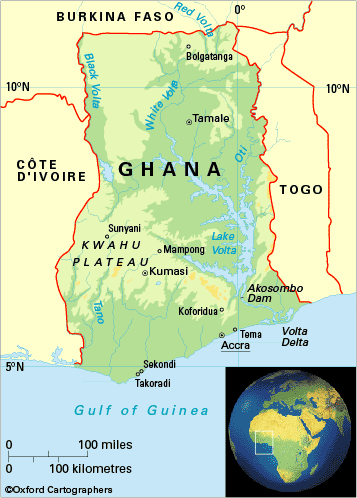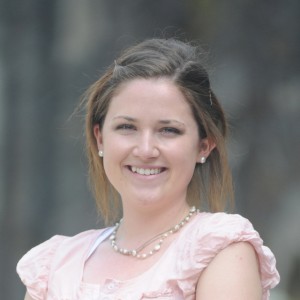
Village Savings and Loans Associations: Filling the Local’s Needs Created by the Insecurity of Farming in Sirigu, Ghana
Hello from Ghana! I’ve almost hit my year mark of leaving for my journey to West Africa to serve in the Peace Corps, and I can’t believe how fast the time has flown. I have learned a tremendous amount about the people, and after getting over the initial differences in resource availability (i.e. running water, reliability in anything, and the language barrier to name a few), I’ve been able to work with the locals to find some ‘small-small’ solutions to the problems facing individuals and the community. One example of this that has required a lot of problem solving is my effort to deal with the farmer-identified problem of a lack of money to start a business, i.e. lack of access to credit. In short, I am working with local farmers to establish savings groups that enable them to take out loans from the money they save as a group. And also in short, it’s working wonderfully! Two groups of illiterate farmers that once scoffed at being able to save 50 pesawa each week (about 0.25 USD) now have a group savings of over 60 cedi!!! (about 30 USD) and have been able to loan money to individuals in the group to do trading.

The path that led the farmers and I to this point starts in October and with the acronym: PACA (participatory analysis for community action). It involves sitting down with a group and finding out what their problems are. The crosscutting issues for the eight groups the NGO staff and I did this with included lack of rainfall, lack of land to farm on, and lack of access to credit. I decided to work on the last one first. The first step I took was to orient myself with the local options for microfinance, which didn’t take long because there is only one bank in the village, Naara Rural Bank. The groups want loans with about a 20% interest rate, 30% at most, and after a long and tiresome search, this simply isn’t available. The bank initially provided no options, and has yet to successfully meet with the groups despite scheduled meeting after scheduled meeting. The microfinance landscape is not friendly to farmers. Loans are only available for government workers that can prove a steady income and for farmers doing small business (i.e. buying produce in Burkina and carrying it to the market to sell), the interest rates are typically upwards of 40%. And the logistics of working with a bank are a huge barrier for these illiterate farmers. The back and forth on the needs of the farmers and the needs of the bank was new terrain for me as a natural resource management volunteer. So around February, I moved on to option two.
Village Savings and Loans Associations is a model used across Africa to fill this microfinance need. The farmers are led through a training on how to save in a culture that doesn’t know how to save. It’s a way for farmers to take small loans and not have to deal with the logistics of working with a bank; they rely on trusting each other. It involves stamps, two colored bags, three locks, and a whistle. I did the four weeks of training with the facilitator for the group (NGO staff translator/organizer) and made accessible resource sheets based on the Village Agent Guide posted on www.VSLA.net. From what I hear, there is an easier way to go about this if your group can shell out 200 cedi/day for a resource person or if the NGO you are working with can take the lead, but the community I am working with isn’t capable of either, so I relied on the Village Agent Guide, blog posts from other Peace Corps Volunteers, and a bit of trial and error to make up for this. How it works: every week the group meets and brings an amount of money the group has agreed on (50 pesawa, 0.25USD) plus 10 pesawa for the social fund to be used when a member has an emergency. After four weeks of bringing money, members can start to take loans of up to three times the amount they have saved (explaining “3 times” to the group members has been surprisingly difficult). The loans have to be repaid by 12 weeks and the member that takes the loan has to pay interest that goes into the box instead of to a bank. The group decides on the interest rate (the groups here decided on 10%). All of this is recorded in their passbook using a stamp, and the money and passbooks are kept in a metal box one of the group members keeps at their house. The box has three locks and the keys to those locks are held by three different group members to ensure that transactions only take place during the meeting.
The intersection between environmental policy and daily life in Sirigu is limited. However, the topics and theories discussed during my first year at BCEP have proved useful in shaping my views on what I am seeing and experience in my village. Specifically, the lack of a Green Revolution in Africa puts the farming practices and hardships into perspective. The farmers are limited in every way- they can’t afford to buy inputs (fertilizer, herbicide, or pesticide), and there isn’t even fertilizer available to purchase if they could; soil fertility is low and the population is growing rapidly, thus reducing the amount of land available and the amount of trees standing; crops are rain-fed and the rainy season has become a moving target for these farmers, probably due to climate change; and the only way they have been saving is through the purchase and sale of livestock, which is inherently risky. Despite these challenges, the farmers are capable of forming groups and trusting each other, to some extent. And though they are wary to try new things, they are willing to learn, so methodology such as VSLA becomes a way to fill these needs and make up for the income that farming isn’t providing them. The farming landscape, sadly, isn’t set to change soon, but for a couple of farming groups in Sirigu, their access to credit can change.
